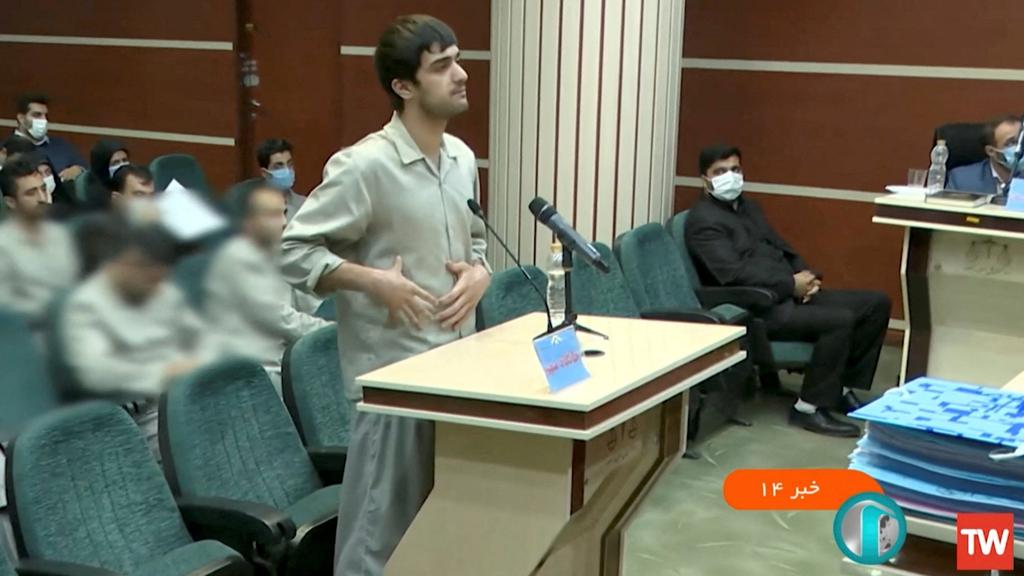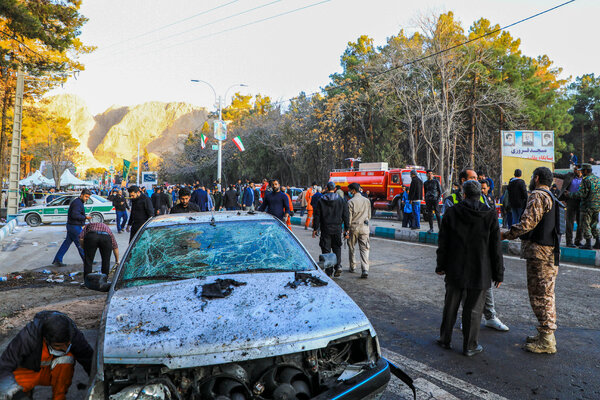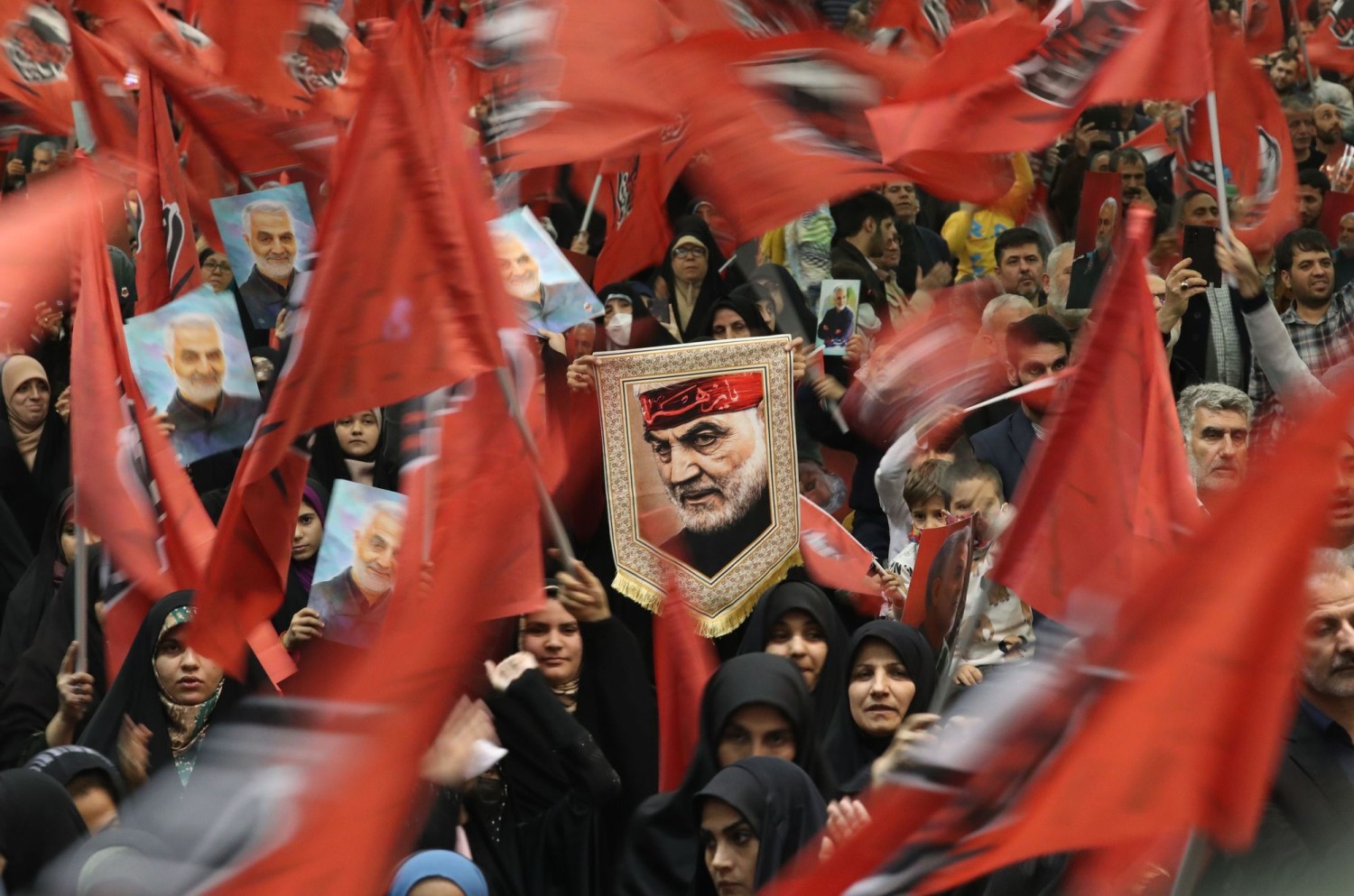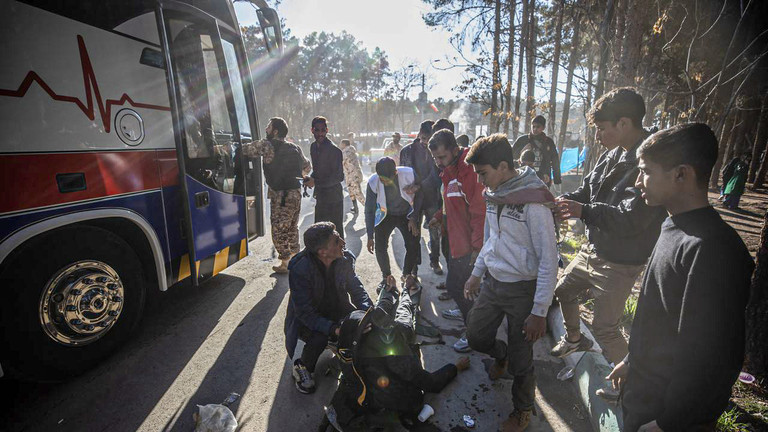This article is more than
4 year oldIran’s telling act: United States and Iraq were given advance warning of incoming missile strikes
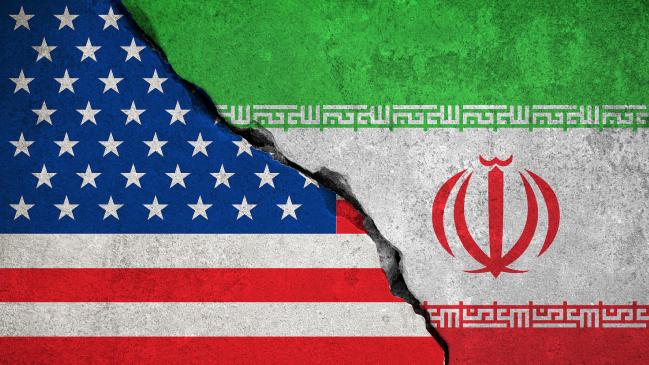
No Americans or Iraqis were killed in Iran’s missile strikes yesterday. Now we know one key reason why.
In a statement posted overnight, Iraq’s Prime Minister Adil Abdul Mahdi revealedIran had sent his government a message before the attacks, warning its “response to the assassination of the martyr Qasem Soleimani had begun or would begin shortly”.
RELATED: United States kills notorious Iranian general Qasem Soleimani
According to a US defence official cited by CNN, the Iraqis were told to stay away from certain military bases. Iraq then gave the United States advance warning of “which bases would be hit”.
So, while launching the attacks that could have started a war, Iran was quietly – albeit indirectly – feeding America the information it needed to keep its personnel safe.
CNN correspondent Nick Robertson today confirmed US forces had “adequate warning to shelter from the attack”.
“I’ve been to al-Asad air base. It’s vast and remote. Strikes there could find plenty of dead ground away from troop bunkers and would have little risk of civilian collateral killings,” he said.
USA Today reports that in addition, an early warning defence system gave the US more advance knowledge that the missiles were incoming.
As a result, American troops had ample time to take shelter in hardened bunkers before the strikes hit them.
RELATED: How Trump will punish Iran for missile attacks
RELATED: Iran ‘standing down’ after missile strikes in Iraq

Then, as news of the attacks broke around the world, the Iranian government sent out a clear message – if the United States did not retaliate, the hostilities would be over.
Foreign Minister Mohammad Javad Zarif described the strikes as “proportionate measures” taken in “self defence”.
“We do not seek escalation or war, but will defend ourselves against any aggression,” he said.
Iran took & concluded proportionate measures in self-defense under Article 51 of UN Charter targeting base from which cowardly armed attack against our citizens & senior officials were launched.
— Javad Zarif (@JZarif) January 8, 2020
We do not seek escalation or war, but will defend ourselves against any aggression.
The implication here is that Iran was trying to have it both ways. It wanted to hit back at the United States for killing Soleimani, but did not want to start an extended, bloody conflict.
“Iran is trying to have its cake and eat it. Create the impression of a fearsome strike for domestic consumption without actually risking escalation. So far, it’s working,” Robertson said.
“There is one message for the international community and another for the Iranians who flocked to the streets for Qasem Soleimani’s funeral.
“Iran’s Foreign Minister Javad Zarif called the strike ‘proportional’, while the theocracy’s Supreme Leader Ayatollah Ali Khamenei told cheering crowds in Tehran it was a ‘crushing’ blow.”
“Iran needed to respond publicly but it didn’t want to trigger a war. A highly visible and symbolic strike that did not kill Americans fits that bill,” said Ilan Goldenberg, Director of Middle East Security at the Centre for a New American Security think tank, as the dust settled.
“It can argue to its people that it fought back against the US and also send a signal to us.
“For the moment, the best response from Trump is no response. I really (hope) he and his people are smart enough to see that.”
It turns out they were. This morning Mr Trump announced he would respond to the attacks by imposing sanctions on Iran – not by launching a military strike of his own.
“No Americans were harmed in last night’s attack by the Iranian regime,” he said, clearly seeking to de-escalate the situation.
“Iran appears to be standing down, which is a very good thing for all parties concerned and a very good thing for the world.”
He said “our great American forces” were prepared for anything, but stopped short of threatening any military action.
“The fact we have this great military and equipment does not mean we have to use it. We do not want to use it. American strength, both military and economic, is the best deterrent,” the President said.
Earlier, he’d tweeted that “all was well”.
All is well! Missiles launched from Iran at two military bases located in Iraq. Assessment of casualties & damages taking place now. So far, so good! We have the most powerful and well equipped military anywhere in the world, by far! I will be making a statement tomorrow morning.
— Donald J. Trump (@realDonaldTrump) January 8, 2020

So, war is off the table for now. But the tensions between Iran and the United States are not going away.
Overnight, while Mr Trump was preparing to deliver his uncharacteristically restrained public statement, Iranian President Hassan Rouhani made it clear his country still aimed to have American forces “kicked out” out of the Middle East.
He described that goal as the “final answer” to Soleimani’s death.
General Soleimani fought heroically against ISIS, Al Nusrah, Al Qaeda et al. If it weren’t for his war on terror, European capitals would be in great danger now.
— Hassan Rouhani (@HassanRouhani) January 8, 2020
Our final answer to his assassination will be to kick all US forces out of the region.
Iran’s supreme leader Ali Khamenei echoed that sentiment as he addressed a crowd of supporters, who were chanting “death to America”.
“We just gave (America) a slap on the face last night. But that is not equivalent to what they did,” he said.
Even if Iran keeps its word, and launches no further direct attacks, there is no guarantee its proxies in the region will do the same.
Speaking to reporters after Mr Trump’s statement, the Chairman of America’s Joint Chiefs of Staff, General Mark Milley, said he “fully expects” militia groups tied to Iran “to conduct terrorist operations against US forces in Iraq and perhaps even elsewhere”.
“I think we’ve just got to again assess the situation. Let’s see what they’re saying publicly, see what they’re saying privately, look at our intelligence, all those things,” added Defence Secretary Mark Esper.
“We’re not going to do anything imprudent. These are serious times, and we take things one step at a time.”
Newer articles
Bombshell new theory on Titan sub disaster
‘Orange turd’: Porn star’s swipe at Trump
Justin Bieber announces huge personal news
Netflix edits out awkward Kim moment
How Kendrick Lamar and Drake changed rap beefs forever Rapid-fire releases and fast pace of modern life elevate diss war to levels unparalleled in hip-hop history.
Kendrick Lamar Beat Drake By Being Drake
Miss Teen USA resigns days after Miss USA departure
UN assembly urges Palestine membership after vote
Sean 'Diddy' Combs asks judge to reject lawsuit alleging rape of 17-year-old girl in 2003
